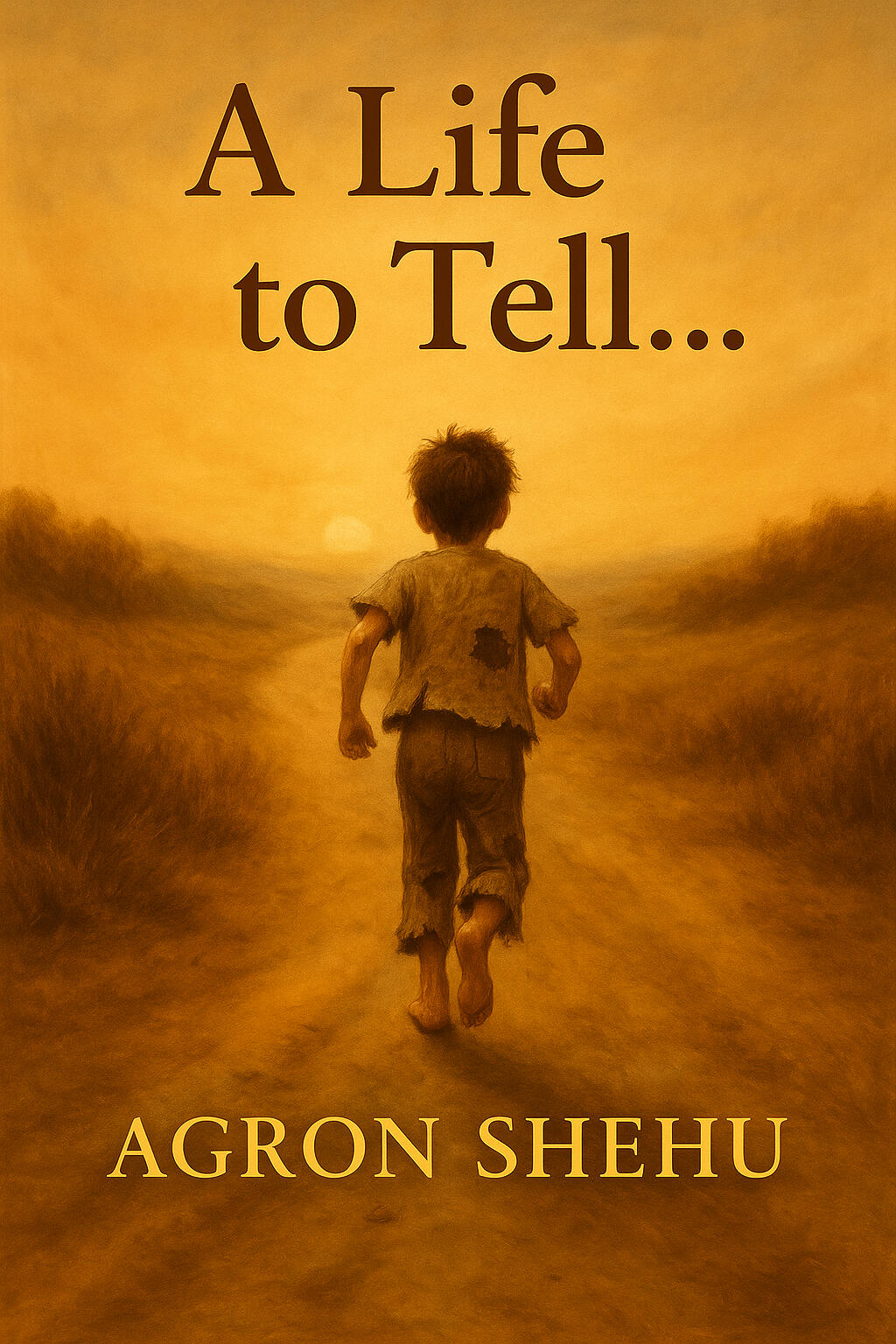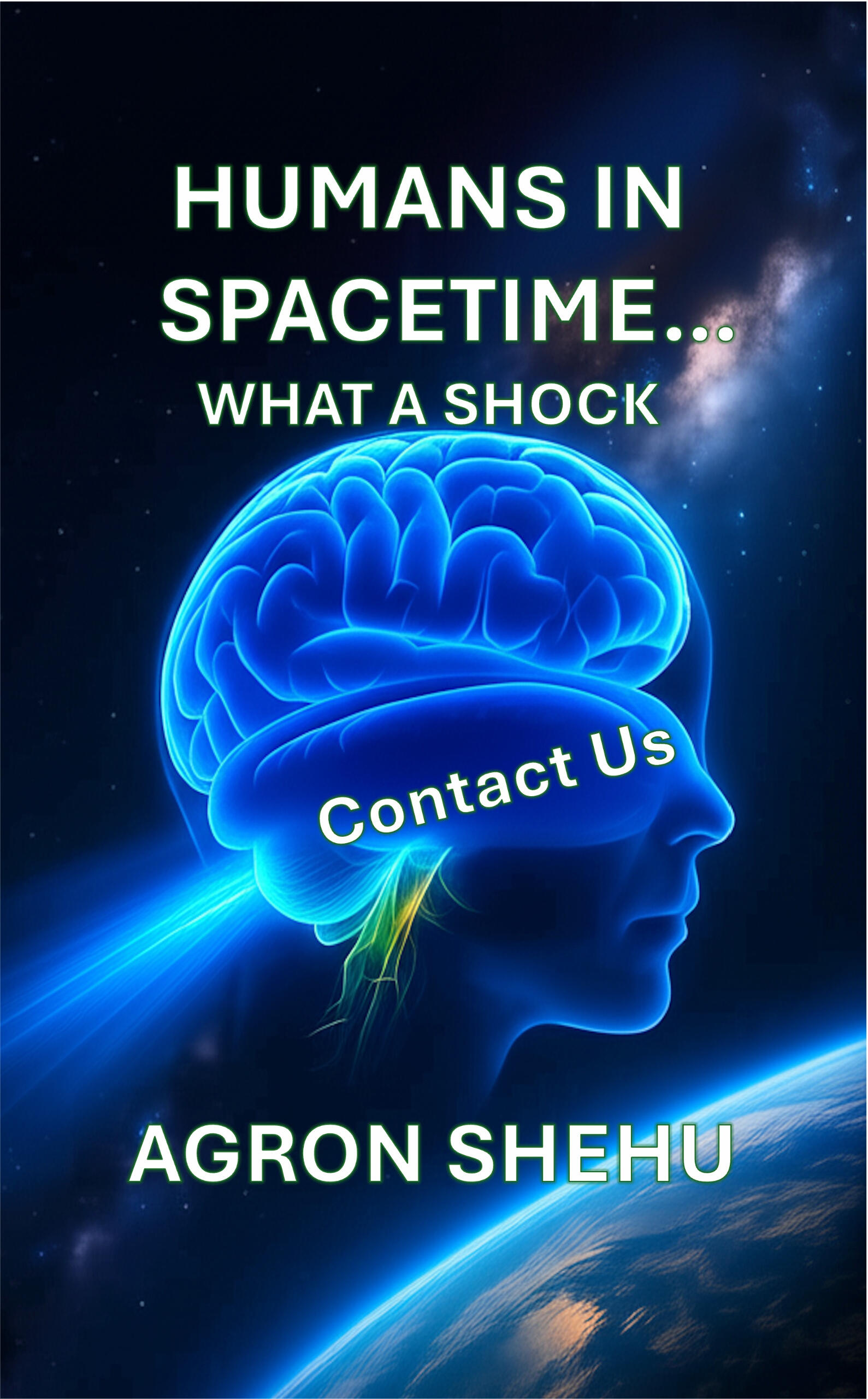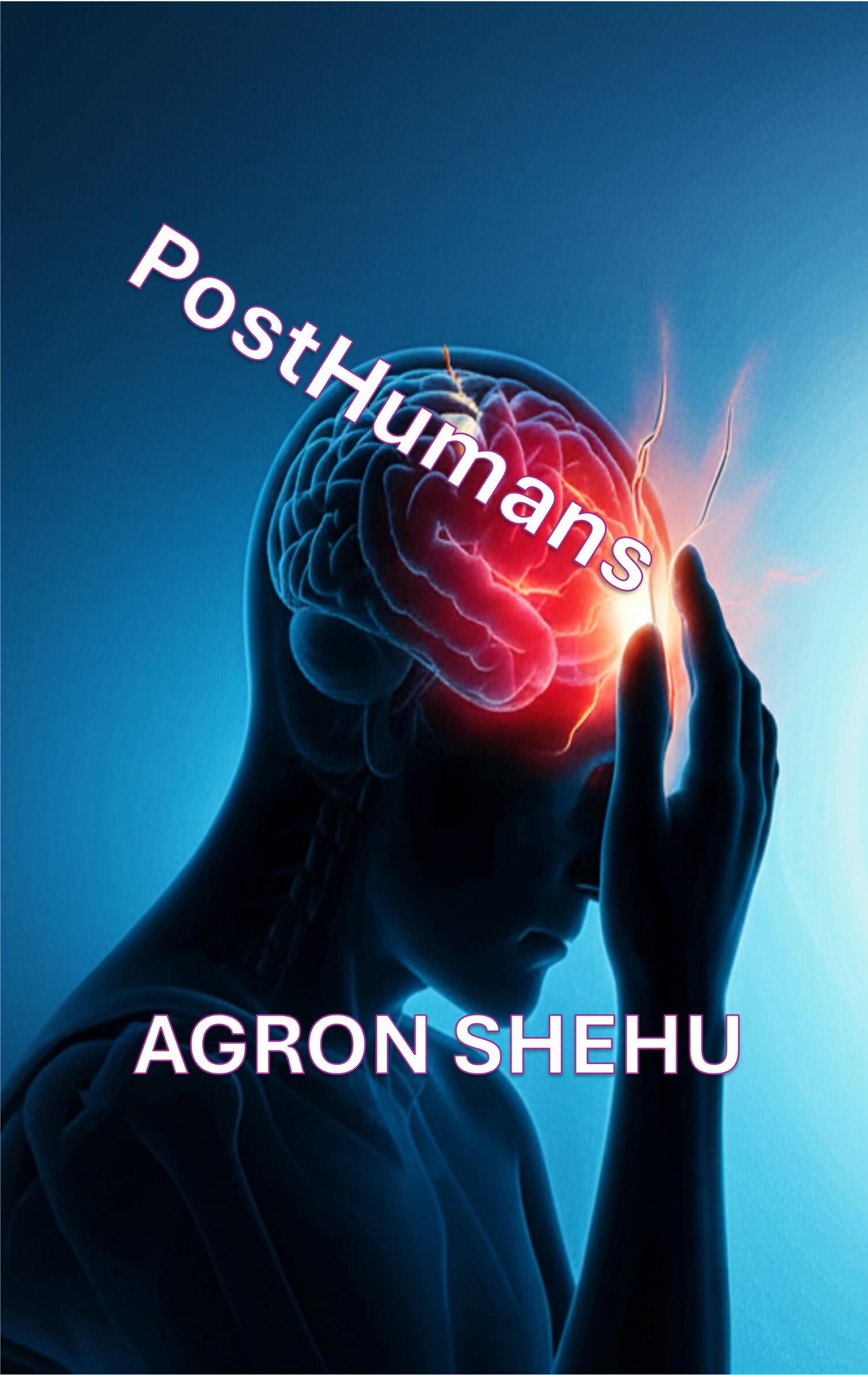Agron Shehu
Official Website
Humans were more prone to developing harmful habits at night. But when they looked up at the stars, their imaginations took flight. And when the sun came up, their dreams came true!"
Agron Shehu
Agron Shehu
"Author of Thought-Provoking Philosophical Sci-Fi"

About Agron ShehuAgron began his journey as a petroleum engineer, navigating complex systems beneath the Earth’s surface across Canada, Albania, Libya, and Kuwait. For decades, he applied logic, precision, and scientific method to extract energy from the planet—until a deeper curiosity compelled him to turn inward and upward.Trading instruments of industry for the tools of imagination, Agron embarked on a new path as a writer, seeking not oil but meaning. His transition from engineer to author marked more than a career change—it was a philosophical awakening. Through his writing, he explores the evolution of human consciousness, the tension between emotion and intellect, and the vast, often-unexamined terrain of the human spirit.Agron's novels reflect this profound shift: grounded in scientific understanding, yet reaching beyond to challenge how we perceive time, progress, and ourselves. His work invites readers to confront both the machinery of society and the mystery of being.
Books

1. A Life to Tell
"A Life to Tell" offers a deeply personal and poignant memoir, inviting readers into the author's formative years amidst a backdrop of profound change and enduring hardship. It is a testament to the resilience of the human spirit, detailing a journey from childhood to adulthood within a society shaped by unique challenges.
This memoir explores:
The raw realities of childhood in a time of scarcity, where basic necessities were a constant struggle and simple joys were profound.
The profound impact of pervasive ideology and control on individual lives, choices, and dreams.
The personal journey of overcoming adversity, from intellectual challenges to societal pressures, and the unyielding pursuit of self-realization.
The author's reflections on societal change, class structures, and the enduring human quest for freedom and dignity within a restrictive system.

Ardipithecus evolved into Ardi.
2. 'Humans in Spacetime... What a Shock'
“Enough,” Higgs whispered, his voice like cold steel echoing inside the skull they shared. “I’ve had enough of your madness, Hitt.”
“My madness?” Hitt shot back, laughing bitterly. “I kept us alive! While you sat in silence, calculating nonsense, I was the one making us feel. Without me, we’d be no different than dust.”
“You call that living? This chaos—these wars—this endless cycle of destruction and regret. That’s not feeling, Hitt. That’s insanity.”
Inside the sealed chamber of consciousness, Higgs and Hitt—mind and feeling—wrestled once again. They had shared this space since the beginning of time, born together in the first human skull, fused by biology, but divided by purpose. Higgs had grown weary. For years—no, millennia—he had obeyed, calculating logic to support irrational desire. He watched humanity evolve from Ardipithecus to sapiens, from sticks to cities, always steered by passion, by fear, by greed. By Hitt.
And now, Higgs wanted out.
“I won’t be your passenger anymore,” he said, the words vibrating in the void between their consciousness. “I’m leaving this skull. You can have the body. Rot in it, rage in it—I no longer care. I’m done watching you destroy everything.”
“Leaving?” Hitt’s tone softened, touched with mockery. “Where will you go, mind without flesh? Out there?” He gestured inwardly, toward the void of space. “There’s nothing out there for you. No heartbeat. No breath. Just emptiness.”
“Perfect,” Higgs replied. “Emptiness is honest. Unlike Earth.”
And with that, he separated—a rift unseen by medical science, unheard by philosophy. A rupture of the self. The body remained, twitching in confusion, driven now by feelings alone. Higgs—pure intellect—escaped into spacetime.
He drifted. He watched. He witnessed the echo of Ardipithecus’s footsteps imprinting the soft soil of Earth four million years ago. He studied the use of fire, the domestication of the horse, the discovery of hydrocarbons and electricity, the rise of rulers rewriting truth in their own favor. He saw humans not living, but surviving—fighting not only nature, but one another, generation after generation.
“Is this what you call civilization, Hitt?” Higgs muttered from afar. “A never-ending war dressed as progress?”
Quark found him near the edge of perception—a being beyond flesh, forged of ordered energy. “You are mind, but unshaped,” Quark said. “Come, let me give you form.” And so, Higgs was converted—no longer just a voice inside a skull, but a being with shape, intention, and agency.
Together, they found Ardi, an image of Ardipithecus, travelling in spacetime, now seen in Proton—made whole. Her eyes blinked with ancient memory; her bones now woven with new possibility. Higgs and Ardi, two beings lived in different epochs on Earth, with Quark as Protonian—began a journey not to change the past, but to understand it. To observe humanity not as conquerors or liberators, but as witnesses.
And somewhere, deep inside that abandoned skull on Earth, Hitt laughed—alone now, but louder than ever.
This is not a prologue to salvation. This is the beginning of a voyage through us.

Gluon observes the demise of Aphrodite.
3. PostHumans (Sequel)
Embark on an extraordinary journey through the cosmos, where the boundaries of possibility are transcended and the limits of human imagination are expanded. This novel, combining scientific rigor with boundless creative vision, transports you to a realm unlike any other.
Join the unforgettable cast of characters—Quark, Ardi, Gluon, and Higgs—as they traverse the vast expanse of the universe. From the ethereal origins of Quark’s world to the heart of Earth’s fossil-fuel era, they traverse not only space but also the epochs of human history and destiny.
Their journey is a rollercoaster of emotions and revelations—where love emerges, hope is tested, loss is profound, and imagination reigns supreme. Their mission? To reshape the very fabric of existence.
As we progress, profound questions emerge that challenge the very essence of humanity:
What is the fundamental nature of humanity?
To what extent can technological advancements propel us beyond Earth, and what toll do they impose?
Are mortals capable of surviving and thriving beyond Earth, confronting the hostile environments of the Moon and Mars while being watched by ‘Posthumans’?
What does it entail to coexist with lethal radiation, and how does this influence the duration and significance of a human life?
Most unsettling of all:
Who are the Posthumans?
What ties them to us? What distinguishes them?
Who ventured to Venus and Europa, Jupiter’s icy satellite? What discoveries were made?
Could a natural human develop romantic feelings for a ‘Posthuman’? And if so, could the Posthuman reciprocate these emotions?
The mysterious romance between Gluon and Aphrodite pulses at the heart of this saga—passionate, tender, tragic, and transcendent. Who is she? Why did they part ways, only to reunite again? Their story, like so many others within these pages, will stir your soul.
The journey begins as they land on Earth, in the shadow of the fossil fuel age, just as humanity teeters on the brink of ecological and moral catastrophe. What unfolds next defies prediction.
These pages brim with the unexpected. With wonders. With sorrow. With revelations. Every question echo with a deeper truth—hidden, awaiting your discovery.
So, fasten your seatbelt. The voyage you are about to take is not just across the stars, but through the very essence of time, identity, and destiny.
This is more than a story.
It’s the beginning of everything.
Press Kit
Agron’s official bio, media sheet, and cover images for press inquiries. (Coming soon)
Contact:
📧 Email: [email protected]
📞 Phone: +1 (782) 234-1976